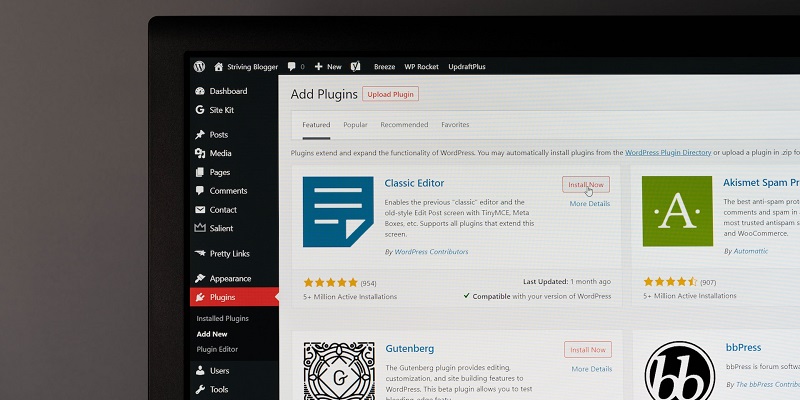Security vulnerabilities in popular WordPress plugins continue to pose a significant threat to website owners and their customers. In two recent incidents, security researchers from Wordfence have discovered critical authentication bypass flaws in WordPress plugins – “Abandoned Cart Lite for WooCommerce” and “Booking Calendar | Appointment Booking | BookIt” – that could potentially result in unauthorized access to customer accounts.
Details of the vulnerability in the “Abandoned Cart Lite for WooCommerce” plugin on WordPress
The “Abandoned Cart Lite for WooCommerce” plugin, which is installed on over 30,000 websites, has been found to contain a critical security flaw that affects user accounts. The vulnerability arises due to insufficient encryption protections that are applied to customer notifications when they abandon their shopping carts on e-commerce sites without completing the purchase.
The attacker can exploit the vulnerability to gain access to the accounts of users who have abandoned their carts, as well as other high-level users, when the right conditions are met. The vulnerability has been rated 9.8 out of 10 for severity on the CVSS scoring system, making it a highly critical vulnerability for online retailers.
The vulnerability impacts all versions of the plugin, including and prior to versions 5.14.2. The core of the problem is an authentication bypass case that allows malicious actors to log in as a user with an abandoned cart. Specifically, the encryption key is hard-coded in the plugin, which makes it easier for attackers to exploit the vulnerability.
Wordfence’s security researchers disclosed the vulnerability to the plugin developer, Tyche Softwares, who addressed the issue with an updated plugin version on June 6, 2023. The updated version 5.15.0 fixes the vulnerability by removing the hard-coded encryption key and applying more robust encryption protections to prevent unauthorized access to user accounts. Responsible disclosure ensured that site owners and their customers were made aware of the threat and can take action to protect themselves.
Wordfence discovered an authentication bypass flaw in the “Booking Calendar | Appointment Booking | BookIt” plugin by StylemixThemes
In addition to the Abandoned Cart Lite for WooCommerce plugin, Wordfence also revealed another critical authentication bypass flaw impacting StylemixThemes’ “Booking Calendar | Appointment Booking | BookIt” plugin. The flaw, which affects over 10,000 WordPress installs, has been identified as CVE-2023-2834 with a CVSS score of 9.8.
Details of the flaw show that it affects versions 2.3.7 and earlier. Attackers can exploit this vulnerability to gain unauthorized access to high-level user accounts, thereby giving them access to sensitive data stored on WordPress sites.
Addressing the flaw in the StylemixThemes’ “Booking Calendar | Appointment Booking | BookIt” plugin
StylemixThemes responded to Wordfence’s disclosure of an authentication bypass flaw by releasing an updated version of the plugin on June 13, 2023. The new version, 2.3.8, fixes the vulnerability by removing the authentication bypass and adding more robust security measures.
The discovery of critical authentication bypass flaws in popular WordPress plugins highlights the ongoing need for website owners to update their software and remain vigilant about security threats. Failure to address these vulnerabilities can lead to unauthorized access to customers’ personal data, which can cause significant harm to both the business and the affected individuals.
It is essential to update plugins regularly and ensure that they are developed by reputable vendors who prioritize security. Security researchers play a vital role in identifying and disclosing vulnerabilities responsibly, which allows developers to fix them promptly before they can be exploited by attackers.
In conclusion, website owners must take appropriate steps to protect themselves and their customers by promptly addressing security vulnerabilities on their sites.

